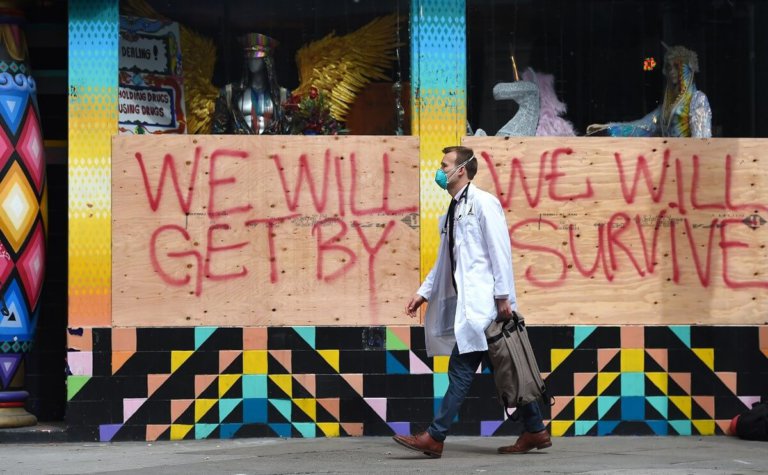
International students in the US are in a COVID-19 bind.
As of March 31, there have been 2,860 deaths from 163,539 cases. Testing for the virus has not been conducted sufficiently, which the New York Times attributes to the “technical flaws and regulatory hurdles” of bureaucracy.
Most universities and colleges are shifting classes, exams and even graduation online.
But the rapid spread of COVID-19 is causing more impact than a shift from physical to virtual classrooms.
International students in the US still have to deal with the future of their jobs, visas, post-graduation plans – and that’s probably just the tip of the iceberg.
Here, we address four major concerns, provide relevant information and offer some suggestions on what you can do – but bear in mind, rules and provisions may differ according to state.
International students in the US can remain on campus
According to Quartz, 72 percent of universities in the US have instructed students to leave campus housing. However, some are allowing international students without alternative housing options to remain on campus as long as they maintain social distance.
This includes the University of California, Irvine, University of California San Diego, and Georgia Institute of Technology.

Special exceptions can be provided to international students who appeal to stay on campus within valid reason. Source: Sandy Huffaker/AFP
Certain universities remain open but encourage students to take classes online while staying put locally, like the University of California, Davis.
Additionally, CBS reports that thirty-two states, along with Washington DC, have issued stay-at-home orders.
This is in line with the Centre for Disease Control (CDC) enforcing a Level 3 travel warning, which discourages all non-essential travel – internationally and domestically. Therefore, international students in the US should not go home – or anywhere else – at this stage, or risk exposing themselves to the virus.
Those who leave may not be able to return. Those entering the US must self-quarantine for two weeks.
Special Student Relief for F-1 visas on the line
https://twitter.com/tigre_nica/status/1244611606899818496
The US Citizenship and Immigration Services (USCIS) can provide special F-1 visa exemptions under emergency circumstances. According to NAFSA: Association of International Educators, this has happened in a previous pandemic.
However, this benefit is only activated when a Special Student Relief notice is posted in the Federal Register. Thus, NAFSA has urged the Department of Homeland Security to issue a COVID-19 Special Student Relief notice. The outcome remains to be seen.
Sadly for prospective students or those with expired visas, the US State Department has suspended F (student) and M (vocational student) visa application services until further notice.
On the bright side, the US Immigration and Customs Enforcement will be flexible with student visas as long as you are engaged in remote learning.
If you’re unsure where you stand, check with your university’s International Office or admissions counsellor.
No exemptions so far for Optional Practical Training (OPT)
As international students in the US know, you must be in the US to apply for OPT. This pass allows you to work in the country for up to three years after graduation.
If you’re an international student approaching the end of your programme, you are probably – and justifiably – worried about how your training and career will be affected. For example, take Aneri Ketan Shah from India, an MSc Architecture student at Pratt Institute, New York.

Since COVID-19 testing is scarce and expensive in the US, many students have resorted to self-isolation. Source: Bruce Bennett/Getty Images via AFP
“Thousands of students graduating in May 2020 got stuck here like me. If I go back home, I can only re-enter the US with my Employment Authorisation Document and a job,” she shares.
Her decision to stay back was largely guided by an email from her university, which read, “We caution you strongly against making these decisions (to depart the US) without consideration of possible impact on your current progress and your future goals.”
“For example, if you are not able to re-enter the US and you plan to graduate this semester, your eligibility for post-completion OPT may be lost.”
What to do if I start showing symptoms of COVID-19?
If you think you may have COVID-19, the CDC advises you to get in touch with your doctor from home first. Practice social distancing as much as possible and seek emergency medical attention if you have trouble breathing or pain in the chest.
See the full list of symptoms and recommendations here.
Liked this? Then you’ll love…
COVID-19: What international students in the UK need to know about visas & lockdown
COVID-19: What international students in Australia should know







